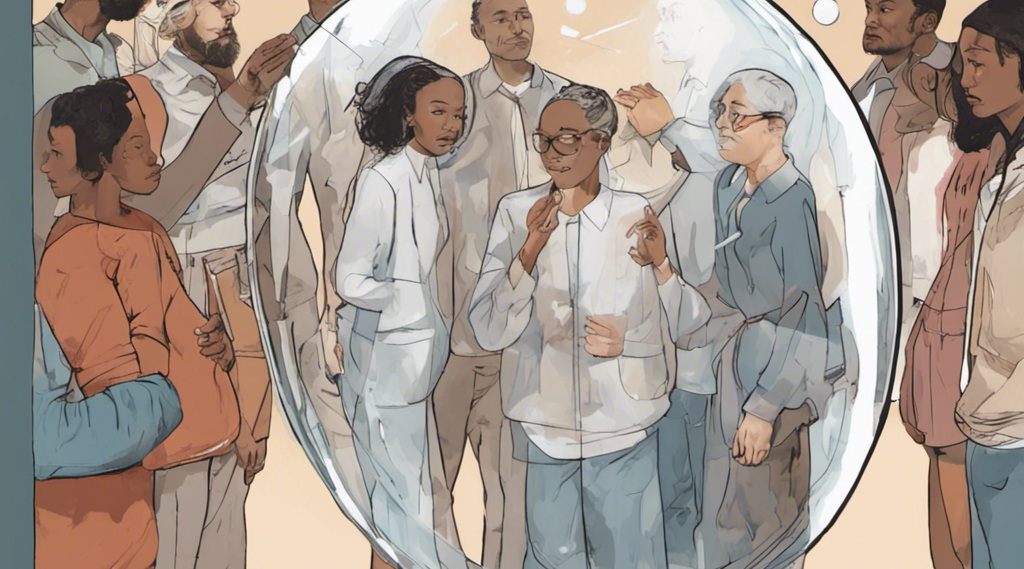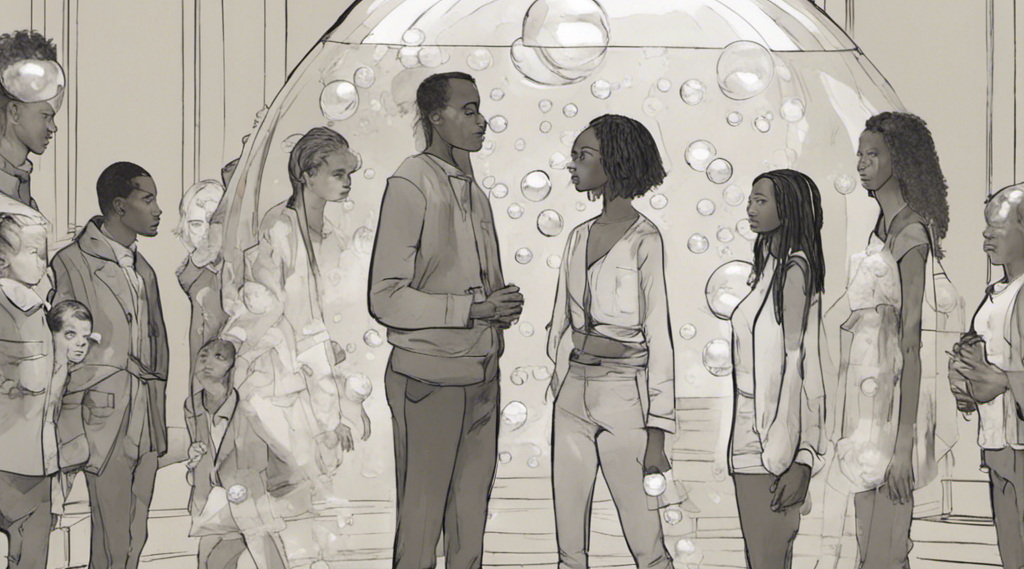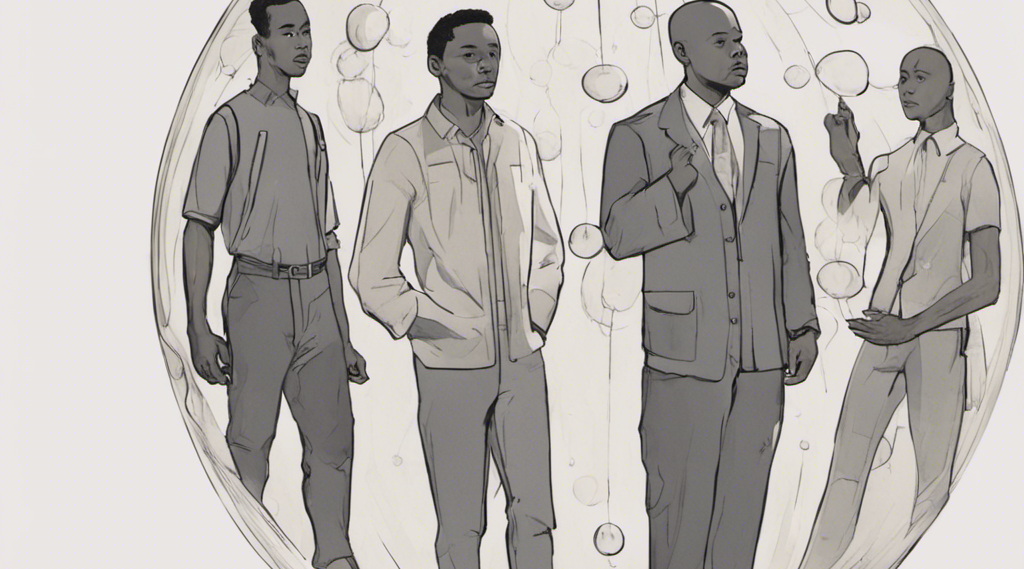
Chapter 1 What’s the Book White Fragility
"White Fragility: Why It's So Hard for White People to Talk About Racism" is a book written by Robin DiAngelo, a sociologist and educator. The book explores the concept of white fragility, which refers to the defensive responses and discomfort experienced by white individuals when their racial privilege is challenged or when discussions about racism arise.
DiAngelo argues that white people often struggle to engage in meaningful conversations about racism due to societal conditioning that reinforces racial hierarchies and protects white privilege. Many white individuals tend to respond defensively, deny their own complicity in racism, or claim to be colorblind, thus impeding progress in addressing systemic racism.
Throughout the book, DiAngelo emphasizes the importance of understanding and acknowledging white privilege, as well as the need for white individuals to actively listen, learn, and confront their own biases in order to contribute effectively to dismantling racism.
"White Fragility" has gained significant attention since its publication in 2018 and has sparked discussions on the topic of race, privilege, and the challenges faced in addressing racism within predominantly white spaces.
Chapter 2 Why is White Fragility Valued
"White Fragility: Why It's So Hard for White People to Talk About Racism" by Robin DiAngelo is a valued book in the field of antiracism and racial equity. The book addresses the concept of white fragility, which refers to the defensive reactions and discomfort that many white individuals experience when discussing racism or being confronted with their own privilege.
DiAngelo presents a thought-provoking analysis of how white people often perpetuate racism unintentionally due to societal conditioning and systemic structures. She encourages readers to examine their own biases, acknowledge the impact of racism, and engage in productive conversations about race.
Many readers appreciate "White Fragility" for its ability to challenge and disrupt preconceived notions about race, providing a starting point for self-reflection and growth. It has contributed significantly to the ongoing dialogue on racism and offers insights into understanding the complexities of racial dynamics in society.
However, it is essential to note that the book has also faced criticism from some quarters. Some argue that it oversimplifies the issues of racism and fails to provide adequate guidance on practical solutions. Others contend that the book may alienate and disempower white readers rather than empowering them to actively address racism.
In summary, "White Fragility" is a book that has sparked important discussions about racism and its impact on individuals and society. While it is valued by many, it is important to approach the book critically and consider various perspectives on the subject of race to foster a more inclusive and comprehensive understanding.
Chapter 3 White Fragility Abstract
In this article, we delve into the thought-provoking insights presented in Robin DiAngelo's book, "White Fragility." Through an examination of the concept of white fragility and its impact on discussions surrounding race, we explore the ways in which individuals can better understand and confront their own racial sensitivities. Join us as we navigate the complexities of racism and the urgent need for meaningful dialogue to dismantle systemic injustices in America.

Chapter 4 Author for White Fragility
Robin DiAngelo is an American author, academic, and diversity trainer known for her work on critical race theory and whiteness studies. She has a background in sociology and received her PhD from the University of Washington. DiAngelo's most well-known book is "White Fragility: Why It's So Hard for White People to Talk About Racism," published in 2018.
In "White Fragility," DiAngelo explores the concept of white fragility and how it hinders meaningful conversations about race. She argues that many white people are defensive and uncomfortable when discussing racism, which prevents them from engaging in productive dialogues and taking necessary actions to address systemic racial inequalities. The book addresses common patterns and responses that arise when discussing race, aiming to help white individuals understand and challenge their own biases and participate in anti-racist work.
DiAngelo's work has sparked both praise and criticism. Supporters appreciate her efforts to address white privilege and encourage self-reflection among white individuals. They argue that her work contributes to a greater understanding of systemic racism and helps create a more inclusive society. Critics, on the other hand, have raised concerns about some aspects of her approach. They argue that her analysis oversimplifies complex issues and that her focus on individual behavior can divert attention from broader structural problems.
Overall, Robin DiAngelo's work has played a significant role in shaping conversations around race and white identity. Whether one agrees with her perspectives or not, her writings have influenced discussions about racism, privilege, and social justice.
Chapter 5 White Fragility Meaning & Theme
1. White Fragility Meaning
The phrase "white fragility" refers to a defensive response exhibited by many white individuals when confronted with discussions about racism and racial inequalities. This term highlights the discomfort, defensiveness, and emotional reactions often experienced by white people in conversations about race.
The book explores why white people find it challenging to engage in meaningful conversations about racism, despite good intentions. It delves into the socialization that reinforces racial superiority, how this affects white individuals' perception of themselves, and the ways they may unknowingly contribute to systemic racism. DiAngelo argues that white people's inability to confront their own biases and engage in productive dialogue hinders progress in addressing racism effectively.
By examining white fragility, DiAngelo aims to encourage self-reflection and open conversations among white individuals about their role in perpetuating racial inequality. The book provides insights and strategies to help white people overcome their defensiveness and actively participate in anti-racist work.
2. White Fragility Theme
The theme of "White Fragility: Why It's So Hard for White People to Talk About Racism" centers around the concept of white fragility itself and explores why many white people find it challenging to engage in discussions about racism. The book, written by Robin DiAngelo, delves into the emotional reactions and defensive responses that often arise when white individuals are confronted with issues of race.
One key theme of the book is the examination of how societal structures and systems perpetuate racial inequality, even if unintentionally, and how this affects individual attitudes and behaviors. DiAngelo argues that due to the dominance of white culture and the historical legacy of racism, white people tend to be shielded from directly confronting their own racial biases and privilege. Consequently, when conversations about racism arise, they may feel uncomfortable or threatened, leading to various defense mechanisms such as defensiveness, denial, or withdrawal.
Another important theme explored in the book is the role of socialization in shaping white individuals' understanding of race. DiAngelo suggests that growing up in a society where whiteness is considered the norm, many white people develop limited racial literacy and lack the vocabulary or tools necessary to engage in meaningful discussions about race. This deficiency can contribute to feelings of discomfort or anxiety when faced with racially charged conversations.
Furthermore, the book highlights the significance of self-reflection and ongoing learning as crucial components in addressing racism. DiAngelo encourages white individuals to examine their own biases, privileges, and complicity in maintaining racial inequities. She emphasizes the need for white people to recognize and challenge their own fragility, and actively participate in dismantling the structures that perpetuate racism.
Overall, the theme of "White Fragility: Why It's So Hard for White People to Talk About Racism" revolves around understanding the psychological, societal, and historical factors that contribute to the difficulty white individuals face in engaging with conversations about race. It illuminates the importance of recognizing and addressing white fragility as a step towards fostering meaningful dialogue and working towards racial justice.

Chapter 6 Delving Into Digital Resources about White Fragility
If you're interested in exploring various formats and concise summaries of "White Fragility", we suggest checking out platforms like Bookey. Bookey offers a diverse collection of books in different formats alongside short summaries, providing a quick overview of each book's content. This is particularly useful for individuals seeking a comprehensive understanding without investing too much time. For those who prefer visual aids, we highly recommend browsing YouTube, where you can find numerous videos related to the book, such as "How 'white fragility' reinforces racism". These videos offer a more detailed and informative look at the book's contents. Unfortunately, we are unable to provide a PDF version of "White Fragility" here as our main goal is to introduce the book's value and present additional reading options. Happy reading!
Chapter 7 White Fragility the Quotes
Here are a few quotes from the book "White Fragility" by Robin DiAngelo:
- "White fragility is a state in which even a minimum amount of racial stress becomes intolerable, triggering a range of defensive moves."
- "The smallest amount of racial stress is intolerable—the mere suggestion that being white has meaning often triggers a range of defensive responses."
- "The expectation that we can and should be free of all racial biases is a powerful belief that we have been socialized to adopt."
- "Whiteness rests upon a foundational premise: the definition of whites as the norm or standard for human, and people of color as a deviation from that norm."
- "White fragility functions as a form of bullying; I am going to make it so miserable for you to confront me—no matter how diplomatically—that you will simply back off, give up, and never raise the issue again."
Please note that these quotes are taken from the book and represent the author's viewpoint.
Chapter 8 Books Like White Fragility
If you enjoyed reading "White Fragility" by Robin DiAngelo and are looking for similar books that explore issues of race, privilege, and social justice, here are a few recommendations:
- "Sapiens" by Yuval Noah Harari: It explores the history of our species, Homo sapiens, from our origins as hunter-gatherers to the present day. The book covers various aspects of human development, including the cognitive revolution, agricultural revolution, and scientific advancements.
- "Between the World and Me" by Ta-Nehisi Coates - Coates shares his personal experiences as a Black man in America, exploring the complexities of race, identity, and the ongoing struggle for equality.
- "Stamped from the Beginning: The Definitive History of Racist Ideas in America" by Ibram X. Kendi - Kendi provides a comprehensive exploration of the history of racism in the United States, tracing its roots and analyzing its various manifestations throughout time.
- "How to Be an Antiracist" by Ibram X. Kendi - In this book, Kendi offers a guide to actively combating racism and encourages readers to adopt an antiracist mindset in their everyday lives.
- "Me and White Supremacy" by Layla F. Saad - This workbook challenges readers to examine their own complicity in upholding white supremacy and provides tools for personal reflection and growth.
- "Dreamland" by Sam Quinones: A captivating and deeply insightful non-fiction book that explores the opioid epidemic in the United States.
These books, like "White Fragility," provide thought-provoking insights into racial injustice and can deepen your understanding of systemic racism and its impact on individuals and communities.